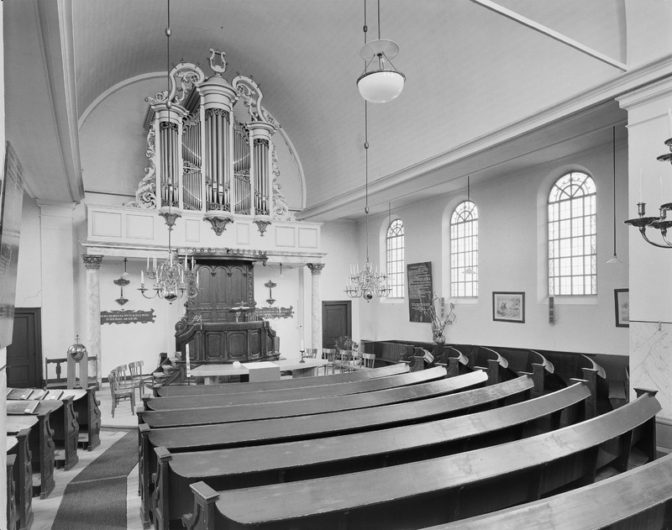Church records of baptisms, marriages, and burials are the go-to sources for vital information before the introduction of the civil registration. After 1811, we usually don’t bother since the civil registration records are often more reliable. But these church records can contain important information.
When to check the church records
Consulting as many records as you can about an ancestor is always a good idea, since you never know what you will find. There are certain situations when consulting the church records is especially useful:
- If you are writing a biography and want to include all details of a person’s life. Religion was important to our ancestors. Finding out where they worshiped, who performed their church marriage ceremony, and who sponsored their baptism, can give you new insights into their lives.
- In the case of an illegitimate child. Civil registration regulations prevented the clerks from recording the father’s name, but churches did not have such prohibitions. In rare cases, you may be able to find a father named.
- If you want to know more about their religion. For example, if you want to know if your ancestors seceeded from the Dutch Reformed Church, to see if that may have contributed to their decision to emigrate.
- If you are stuck. Then you want to expand your research to include lesser used records.

Interior of the Dutch Reformed Church of Terborg. Credits: Paul van Galen, Rijksdienst Cultureel Erfgoed (CC-BY-SA)
Example: Johannes Henricus Tersteeg
Johannes Henricus Tersteeg was born in Terborg, Gelderland on 31 March 1872. His birth record identifies his parents as Johannes Cornelis Tersteeg, minister in Terborg, and Catharina Johanna Kraijenhoff van de Leur his wife.1
According to his death record, Johannes Henricus Tersteeg died in Terborg on 11 July 1872. As is normal for Dutch death records, the death record does not list the cause of death.2
The baptismal register of Terborg provides additional information. It says that Joan Henricus, son of Johannes Cornelis Tersteeg and Catharina Johanna Kraijenhoff v.d. Leur was born on 31 March and baptized on 30 June 1872 by his grandfather. It says that the witnesses were the father and grandmother, since the mother was still too weak after a severe illness. A note in the margin shows that the child died on 11 July 1872 after five days of meningitis.3
If we had stopped researching when we found the civil registration records, we would not have known about the mother’s illness and would not have known that the child died of meningitis.
Sources
- Terborg, Gelderland, Netherlands, birth record 1872 no. 37, Johannes Henricus Tersteeg, 3 April 1872; “Personen,” index and scans, Gelders Archief (http://www.geldersarchief.nl : accessed 5 March 2016).
- Terborg, death record 1872 no. 79, Johannes Henricus Tersteeg, 11 July 1872; “Personen,” Gelders Archief.
- Dutch Reformed Church (Terborg), baptismal register 1772-1892, call number 350, Joan Henricus Tersteeg, 30 June 1872; Retroacta DTB, record group 3019; Erfgoedcentrum Achterhoek en Liemers, Doetinchem; online finding aid and digital images, Erfgoedcentrum Achterhoek en Liemers (http://www.ecal.nu : accessed 18 March 2015).


Daar heb ik ook wel eens over nagedacht voor sommige toepassingen. Maar doopgegevens van na 1810 zijn toch niet via Internet bereikbaar? Als je gezond bent, kun je natuurlijk naar een archief. Maar die optie heeft niet iedereen.
Ik heb het door het archief laten scannen. Dat was voor de klant voordeliger dan mij erheen laten reizen voor vijf minuten werk.
I’m curious as to how one might go about accessing church baptism records after 1811. It’s clear that these aren’t available via the internet, but wondering how would one know which records are available somewhere and how to access them. In particular I personally am interested in records for Groningen in the 1820s. Would these generally be available through provincial archives or would one have to find the local church and see if the records exist there? I plan to travel to the Netherlands later this summer so I could visit the needed archive directly if they allow it. Your website is wonderful, and appreciate how you generously share your expertise with Dutch genealogy research.
Excellent question. I will answer that in the form of an “Ask Yvette” blog post that I will publish on Friday.
The article is now live: https://www.dutchgenealogy.nl/ask-yvette-where-to-find-dutch-church-records-after-1811/